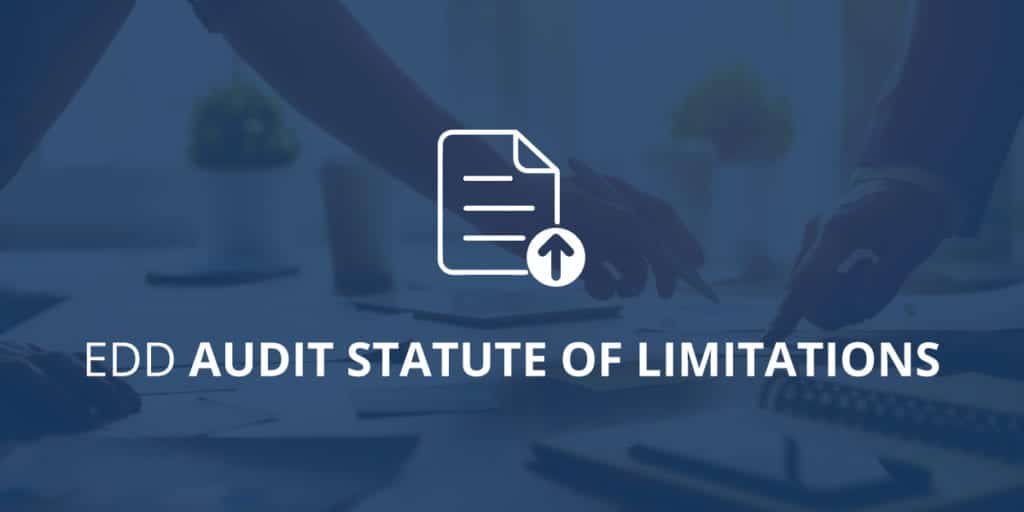
If you have been contacted by the California Employment Development Department (EDD), you are not alone. Here is some EDD audit advice. The California EDD aggressively enforces employers’ payroll tax obligations, and falling behind even for a single quarter can lead to an invasive audit with the potential for severe financial penalties. What is the California EDD Audit Statue of Limitations?
But the California EDD does not always audit businesses right away. Furthermore, even if your audit was triggered by an isolated delay in payment, the California EDD may decide to audit several years’ worth of your company’s payroll tax records. For these reasons, if you have been informed that your company is being audited, it is important for you to be aware of your company’s rights under the California EDD’s audit statute of limitations.
Unemployment Insurance Code Section 1132: The California EDD Audit Statute of Limitations
The statute of limitations for California EDD audits appears in Section 1132 of the Unemployment Insurance Code. Under Section 1132:
“Except in the case of failure without good cause to file a return or report, fraud or intent to evade any provision of this division or authorized regulations, every notice of assessment shall be made within three years after the last day of the month following the close of the calendar quarter during which the contribution liability included in the assessment accrued or within three years after the deficient return or report is filed, or was due, whichever period expires the later. . . .
“In case of failure without good cause to file a return or report, every notice of assessment shall be made within eight years after the last day of the month following the close of the calendar quarter during which the contribution liability included in the assessment accrued.”
In other words, in most cases, the statute of limitations for California EDD audits is three years, although it may be extended to eight years in some cases. In cases involving “fraud or intent to evade” an employer’s payroll tax responsibilities, there is no statute of limitations at all.
The three-year statute of limitations runs from the later of (i) the end of the month following the close of the relevant quarter, or (ii) the date that a deficient return or report is filed or was due. Since the eight-year statute of limitations applies only to the failure to file a return or report, it runs solely from the end of the month following the close of the relevant quarter.
The California EDD Statute of Limitations Applies to the Delivery of a “Notice of Assessment”
If you read the quoted language above carefully, you may have noticed that the statute of limitations establishes a deadline for the delivery of, “every notice of assessment.” This is critical, because it means that the statute of limitations could expire while a California EDD audit is pending. These audits will often drag out over a period of several months; and, if the California EDD does not send a notice of assessment before the applicable statute of limitations expires, then the audit should be terminated immediately without any risk of liability (at least insofar as it covers the time-barred period).
However, as an employer, it is up to you to assert the statute of limitations under Section 1132. The California EDD frequently initiates audits for periods that are time-barred under the statute of limitations, and it will not automatically terminate an audit if the applicable statute of limitations expires. For more information, you can read: What to Expect from an EDD Audit.
Speak with a California Payroll Tax Lawyer for Free
If you have been contacted by the California EDD, our attorneys can help ensure that you pay no more than absolutely necessary. To discuss your California EDD audit in confidence, call 619-595-1655 for EDD audit advice or request a complimentary case evaluation online today.

Leave a Reply